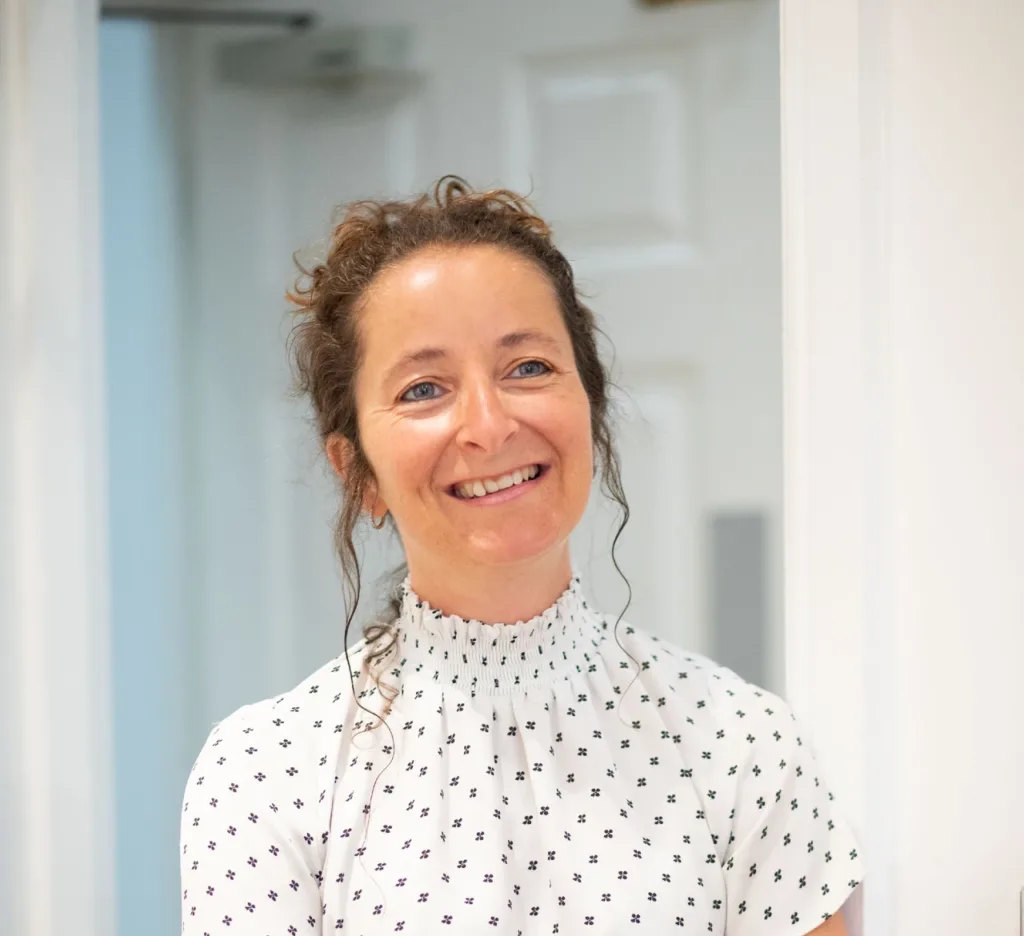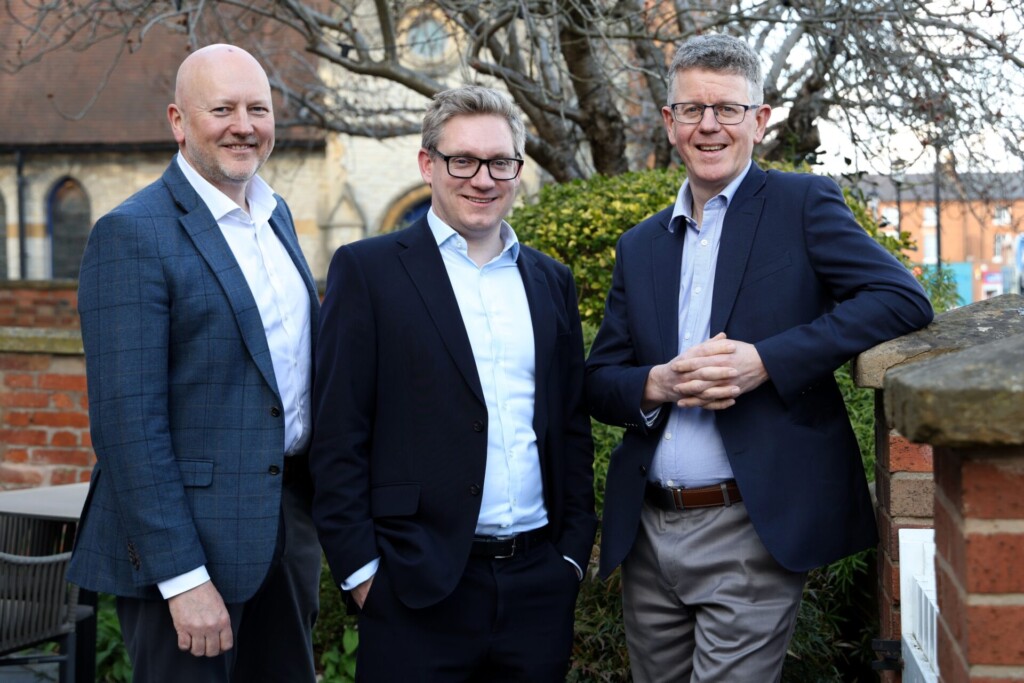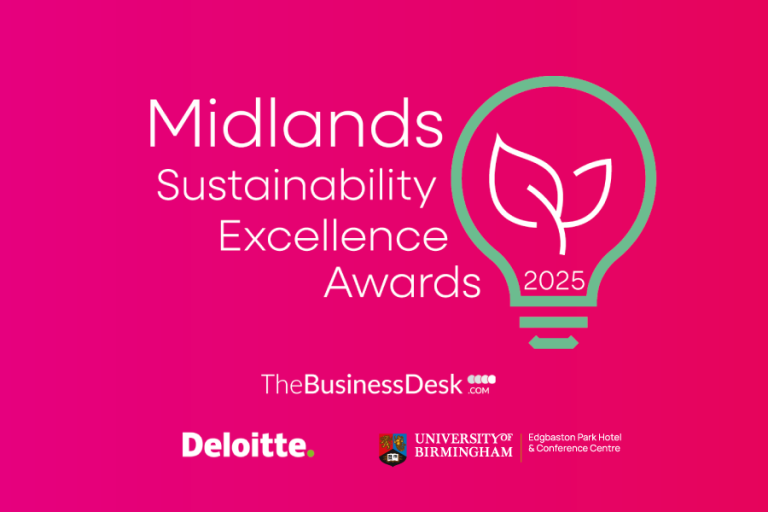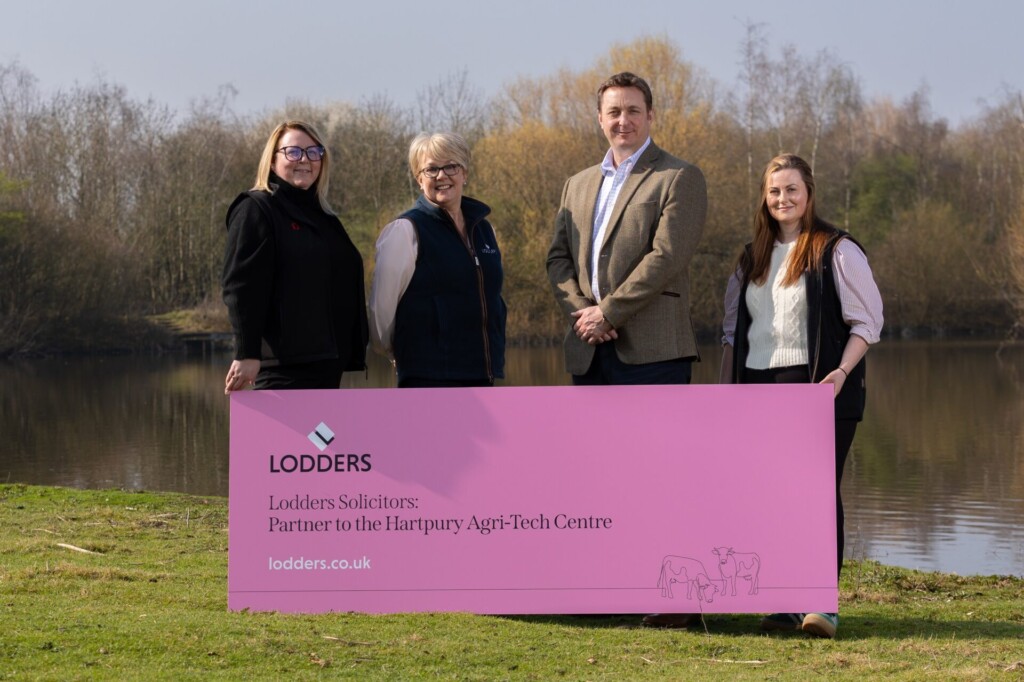Nestled between the North Warwickshire towns of Atherstone and Coleshill, the Merevale & Blyth Estate is a privately owned and managed landed estate that is steeped in history.
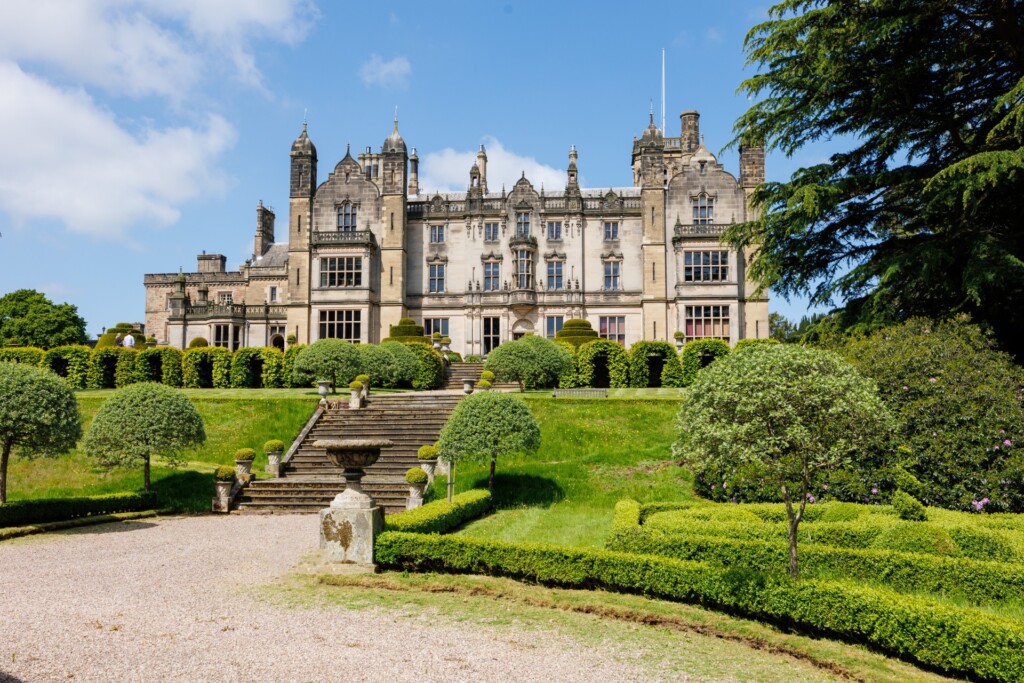
As well as having a home farm that comprises arable and grassland, the Estate also includes let farms, extensive woodlands, and a diverse range of property.
Developing the Estate’s resources for the long term, whilst retaining its unique and traditional character and working in partnership with the local community, is the central focus for all activities on this busy, rural Estate as it continues along its journey towards a more regenerative style of farming.
The Estate: at a glance
Merevale Hall has been under the ownership of the Dugdale family since 1767. The Grade II listed building was rebuilt circa 1840 in the Elizabethan style of architect Edward Blore. Grade I listed Blyth Hall has been in the Dugdale family since 1624.
Dramatically situated at the end of a narrow peninsular of hill above Atherstone, Merevale Hall is now enjoyed by Sir William Matthew Stratford Dugdale and his family. The gardens are a mixture of formal, informal, and kitchen, and the surrounding parkland includes woodland and lakes.
Approximately 30 percent of the Merevale & Blyth Estates is arable land, farmed in-hand by contract arrangement. 28 percent is wooded, while the remainder is let for either agricultural, amenity or commercial purposes. This includes residential and business premises, all of which are let and managed through the Estate Office. Around 40 years ago, the Estate was home to four separate dairy farms, before the decision was made to combine them and operate as one arable contract, farming wheat, barley, rape, and linseed, as well as grain maize – a sought-after cattle food maize that is typically imported into the UK.
The Estate employs around 20 staff both in and outside of the office, and each year it takes on a student land agent from Harper Adams University on a sandwich placement to assist the Estate Manager and help to build up their practical experience.
Overall, the Merevale & Blyth Estate’s team is responsible for the day-to-day property management of over 500 residential, commercial, agricultural, and other lets, the management of an in-hand commercial shoot, as well as the upkeep of two listed properties and their parks.
Property makers
Owing to the Estate’s objective to grow through sustainable diversification, it offers many commercial development opportunities, which are undertaken either by the Estate Offices or through partnerships, to fit alongside its other property lettings.
The Estate has seen a great deal of change over the years. Recent commercial projects include the development of the former Baddesley Colliery to a car storage depot, a pub and hotel development, and the production of renewable energy from the Estate’s woodlands used to heat the Estate Office and the Hall. The Estate also lets out land to accommodate three key energy generation schemes, all situated just a few metres from each other, including:
- Anaerobic digester – run by Biogen, the plant uses supermarket waste to generate methane, which is used to generate renewable heat and power.
- Biomass energy – located on the site of the old coal mine waste heap, producing electricity from biomass waste.
- Solar farm – a solar field spanning 14 acres.
Together, these three renewable energy generation sites can produce upwards of 17.5 MW of energy, enough to power around 15,000 homes.
Of the Estate’s diversification strategies, estate manager Roderick Duggleby says:
“It is important to us that we strike a balance between conserving and protecting the countryside and natural landscape and encouraging the rural economy to flourish through sustainable diversification. Development is happening all around us; we’d be missing out if we weren’t a part of that.”
Natural regeneration
As an extension of his estate management role, Roderick embarked on a 300-acre Countryside Stewardship Scheme in 2019. The government-run scheme provides financial incentives for farmers, foresters, and land managers to look after and improve the environment.
Merevale Estate is actively involved in large-scale woodland plantings, environmental land management schemes, and efforts to increase biodiversity through habitat creation and maintenance, as Roderick explains: “We have planted over 100 acres of wildflowers, new hedgerows, built wildlife corridors alongside wooded areas and provide over 10 tons of supplementary feed for wild birds every winter. This has led to a boom in wildlife, with all sorts of animals spotted on the Estate, from red kites and muntjac deer to yellowhammers and grey partridge. The farm and our stewardship efforts run side-by-side, and we have plans to blend the two later down the line.
“Whilst management of the woodland used to cost the Estate money, it is now economically beneficial to us, through our engagement with Stewardship initiatives and the repurposing of materials. Even the heating for Merevale Hall is produced through dried wood chippings from timber felled.”
Blyth Hall
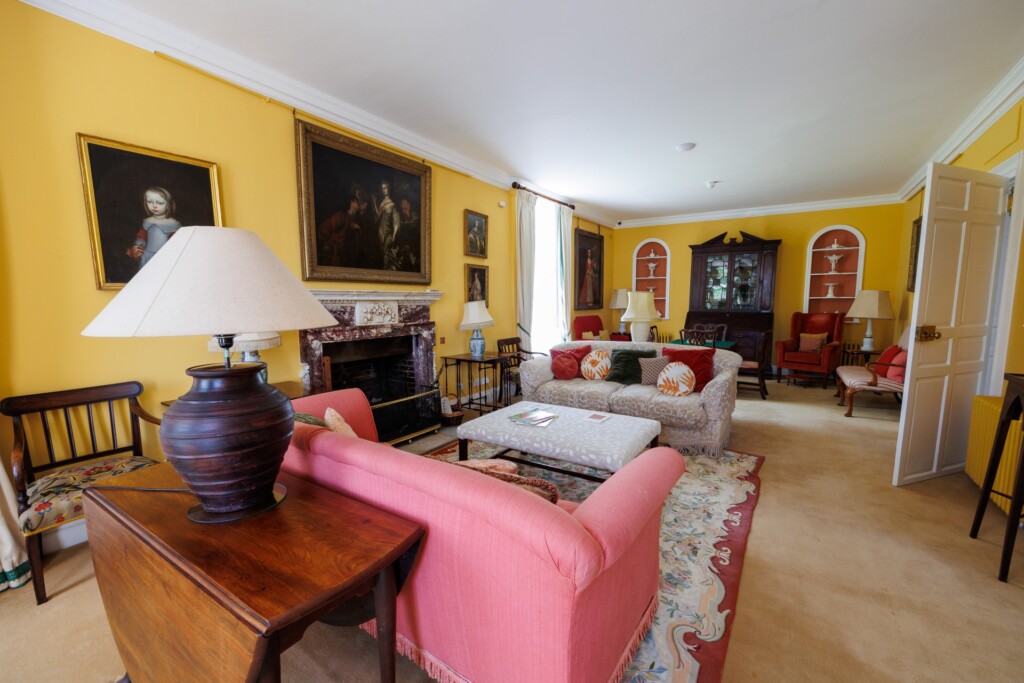
Blyth Hall is a Grade I Listed 17th Century Queen Anne country manor house located between Coleshill and Shustoke in Warwickshire.
Following an extensive refurbishment programme, the Hall is now a country guesthouse that opened for hire in June 2023. Sleeping 30, the stunning Hall comprises 13 bedrooms, including a three-room bridal suite, three reception rooms, a grand dining room and kitchens.
Bursting with character, charm and rich family heritage, the Hall boasts open fires, and extensive riverside lawns, parkland, and gardens for the guests to enjoy.
Find out more: www.blyth-hall.co.uk
Meet the Estate Manager: Roderick Duggleby
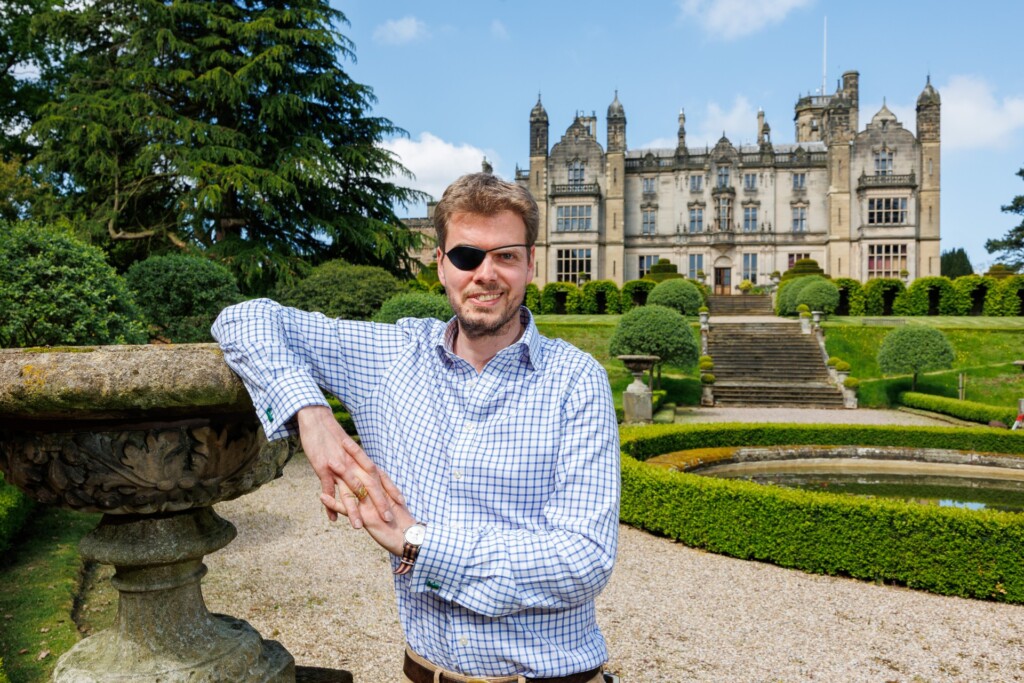
How long have you worked at the Merevale & Blyth Estate?
22 years since graduating from Harper Adams in 2001.
Where do you live on the Estate?
I live with my family and dogs in an old, thatched cottage, named after a local baker who was born in the early 1900s and spent his entire 96 years of life living and working on the Estate. He lived an extraordinary life, including surviving as a prisoner of war during both World Wars. It is important to me that these pieces of the Estate’s history are never forgotten.
What does an average day look like?
No one day is the same and I’m always plate-spinning! I can go from a management meeting to dealing with trespassers to greeting guests at Blyth Hall. I work long hours and weekends, but it is a very rewarding job, and more of a lifestyle than an occupation.
What is the most challenging part of your role?
There is such a wide variety of work on a rural estate so keeping up with all the management tasks and development projects can be demanding. Whilst mostly harmless, trespassers on the Estate can be a challenge, and at all times of the day too. Fly tipping is also a big issue, and tyres that are dumped can be costly to clean up.
How do you work with the local community?
As Chairman of the Parish Council, I strive to ensure that the Estate and the community work together harmoniously. We always aim to use local, skilled contractors for property maintenance work, and allow community groups and local schools onto the Estate during bluebell season.
Merevale Estate also makes a significant donation to a local committee each year to fund new resources for the community, whether that be chairs for the community hall, or AstroTurf for the local football pitch.
Honesty and enthusiasm
The Estate was looking for a fresh approach to its legal matters and chose Lodders based on the firm’s strong reputation in the agricultural sector, as well as its broad-ranging expertise. Roderick says:
“Selecting a law firm that is well-aligned to the values of the Estate was crucial: Honesty and enthusiasm are two key principles we value highly. As a firm, Lodders has these in abundance.
Lodders is a natural fit for us, with a team of solicitors that covers a range of different areas, from agricultural law to commercial property and litigation. We have worked closely with Alastair Frew who has provided excellent communication and strong expertise.”
Click here to read Lodders Life Issue 9 in full.
Contact usContact us
Need more advice?
For help with a legal problem or more information on any of our services at Lodders, please get in touch with our friendly team. You can contact us via the number or email address below, or fill in the form and we will get back to you as quickly as we can.

Contact a member of the team
Read more
Other news, insights and events


